It’s back to school time. According to the aisles of stores. Man, I hated that as a kid. It’s like, I KNOW we have to go back to school. You don’t have to put up a big banner about it. That’s like having a huge, enthusiastic banner at a funeral: “You’re Dead!”
In fact, the more I think about it, the more I like that comparison. Those back to school banners do signify a death: The death of summer. The death of fun. The death of reading whatever the hell you want.
Fall is all about required reading. But not all required reads are created equal. Some really provide...special opportunities for pain.
Here are some of my least favorites.
![]() Shakespeare (All Titles)
Shakespeare (All Titles)
I’m sure some people are thinking, “No way, you uncultured swine!”
To which I say, Yes, way. You asshole.
The way Shakespeare works in school makes no sense. For starters, you READ plays. That’s dumb. That’s like reading the script for Austin Powers 2: The Spy Who Shagged Me instead of seeing the movie. (This is something I did as a youth. A boy with stupid interests and access to unlimited printing is a terrible, terrible thing.)
Second, teachers always think it’s a great idea to have a class read an entire play out loud. Some kid plays a king, some other kid plays a precocious young lady who impersonates a lawyer. You know the drill.
Cut to 45 minutes later...
Teacher: “Greg...Greg...it’s your line, Greg.”
Greg: [sits up straight, starts reading]
Teacher: “Greg, that’s way behind where we are. We’re on…page 868.”
Greg: [flips forward a shocking number of pages, finally gets there] “Forsooth!”
Totally worth the wait. A+ performance, Greg. Electrifying.
I guess I’m not saying all Shakespeare is bad. Macbeth seems pretty metal. But as required reading goes, the delivery of Shakespeare in the classroom leaves a lot to be desired.
![]() 'Anthem' by Ayn Rand
'Anthem' by Ayn Rand
I thought this book was alright, but now I think it’s just a gateway drug to Rand’s longer work, which I’ve never read and doesn’t seem up my alley based solely on the people I’ve talked to at parties who have “really connected with” Atlas Shrugged.
It’s school where we learn that weed is a gateway drug to heroin. This lesson should be applied to the work of Ayn Rand as well. Damn this slim, easily-digestible novel about pronouns. It even has a pretty cool cover, which I now know is designed to entrap young people like myself.
![]() 'Catcher in the Rye' by J.D. Salinger
'Catcher in the Rye' by J.D. Salinger
This is such a weird one to read in school. Holden Caulfield is total a non-conformist. And we’re all forced to read about his exploits and write papers about them. Is it perhaps the ultimate lesson in irony? I don’t think so. I think we’re being snowed by a bunch of crumbums and phonies.
Also, what the hell is up with this, the semi-standard school version of the cover?
Was someone intentionally trying to make this book seem boring? Beige, boring font, and a little splash of color in the upper corner? "Class, you're welcome to use your entire seat while reading this book, but based on what we see on the cover here, I think it's safe to assume you're only going to need the edge."
![]() 'Frankenstein' by Mary Shelley
'Frankenstein' by Mary Shelley
You know what? We get it. You read a damn book. Now stop bothering me about how a dude walking around with a big green head and bolts in his neck isn’t “Frankenstein.” Type “Frankenstein costume” into Google, hit images (safe search off. C’mon, live a little!) and see how many shambling giant green dudes you see and how many science nerds you see.
The creature's name is the least of the differences between the movie/pop culture Frankenstein and the book version.
It's not that the book is bad. It's just that it's wielded as a weapon in a bad way.
Sort of like the way people say guns don't kill people, people kill people? Frankenstein doesn't annoy people at Halloween parties. People who read Frankenstein do.
![]() 'Of Mice and Men' by John Steinbeck
'Of Mice and Men' by John Steinbeck
At least this one is kind of cool. You’ve got this big oaf, who’s sort of like a Frankenstein (fight me). And you get a good life lesson for teens, which is that it’s good to stick by your friends through thick and thin, but there’s a line. And that line comes when your friend breaks a woman’s neck, if not slightly before.
However, this one makes the list because of Curley, the book’s antagonist, and his glove:
'Well, that glove's fulla Vaseline.'
'Vaseline? What the hell for?'
'Well, I will tell ya what—Curley says he's keepin' that hand soft for his wife.'
Yeah, there’s a dude who keeps his hand in a glove full of Vaseline.
Now, that sounds exactly like something I’d like to read in a book today. It’s weird and fucked-up. But it’s not the sort of thing I like reading in 8th grade English where teachers seem woefully unprepared to talk about what exactly it means. If they’re unprepared for that, they DEFINITELY aren’t prepared to discuss it with a young Pete, who remembers almost nothing of the book other than this detail and has obsessed on it since first reading it. I could have written an entire paper called “My Top 505 Questions About Curley’s Vaseline Glove.”
My advice: print a version where the lubed-up glove is excised if you’re not prepared to talk to 8th graders about the ways Curley is getting down.
![]() 'The Yellow Wallpaper' by Charlotte Perkins Gilman
'The Yellow Wallpaper' by Charlotte Perkins Gilman
It’s not the story itself. The story itself is cool. It’s creepy. No, the problem is that this was my introduction to the idea of literary analysis. And what an introduction it was.
Later in life, I feel a division between useful and useless literary criticism. There’s the kind that’s about looking at how a scene functions and so on, what’s happening and how it works on the page. That I have a use for. There’s also the kind that talks about why something exists, what convinced the author to write it. That can be interesting if the initial story is interesting to you.
Then there's the other kind. The kind of literary criticism that’s just about theories that can’t be proven or disproven. If you took any college English classes, you know what I mean. Theories about this or that character and their sex life. This character being attracted to his mother. Theories that have almost no basis in the text, theories that, if they're true, don't really change the meaning of the story, but one of your classmates is happy to drag you through it anyway. I mean, sure, there’s something going on in “The Yellow Wallpaper,” but the author explicitly said what that something was.
As an illustrative example of how I feel about this, I wrote out a dozen, fully-fleshed-out theories regarding the motion picture Demolition Man. Some had to do with the titular demolition man never waking from cryosleep. Some had to do with the entirety of the movie taking place within the head of main antagonist Simon Phoenix. One had to do with the entire thing being a Total-Recall-esque fantasy of Lenina Huxley (Sandra Bullock).
It’s easy. Try it right now. Pick a book, pick a weird scene, and then make up some gobbledygook about it. Bonus points if it involves something standing in for a penis or penises.
Billy Collins had a great poem about this, which I’ll paraphrase in saying that school teaches students to not enjoy books and reading, but to tie a book to a chair and beat a confession out of it. "The Yellow Wallpaper," we beat it, waterboarded it, shocked it with car batteries like Stallone in Rambo: First Blood Part II. We were relentless. We tore this thing apart and went down false, invented roads when the text itself is really good and the actual reasons for its creation are also interesting, purposeful, and can create great discussion.
![]() 'The Canterbury Tales' by Geoffrey Chaucer
'The Canterbury Tales' by Geoffrey Chaucer
This is like punishment Shakespeare. Like if you thought Shakespeare wasn’t impenetrable enough, good news, we have a dude who’s EVEN OLDER! Do you just glide through Shakespeare, understanding all his neologisms and metaphors? Great, check out this Chaucer dude!
This was published in 1387, ya’ll. Reading The Canterbury Tales is like watching Monty Python IN THE YEAR 2600! There isn’t a single bit of it that makes sense without an equal amount of explanatory text.
The setup is cool. A storytelling contest, the best story winning a dinner. Then we get...25 tales!? I wouldn’t listen to 25 tales for a free Wendy’s meal. I wouldn’t listen to 25 stories for a week of free Wendy’s. That's entirely too many, and very few of them involve Demolition Man or demolition men.
I know this is an important historical document, that it tells us a lot about the social structure of the time. But...excuse me for potential blasphemy here, but maybe that means it belongs in a history class?
![]() 'Dracula' by Bram Stoker
'Dracula' by Bram Stoker
Sorry, everyone. But this is nothing like Castlevania. This isn’t even like Castlevania II: Simon’s Quest.
It WAS, at one time, until Bram Stoker left out this ending:
As we looked there came a terrible convulsion of the earth so that we seemed to rock to and fro and fell to our knees. At the same moment with a roar which seemed to shake the very heavens the whole castle and the rock and even the hill on which it stood seemed to rise into the air and scatter in fragments while a mighty cloud of black and yellow smoke volume on volume in rolling grandeur was shot upwards with inconceivable rapidity.
Then there was a stillness in nature as the echoes of that thunderous report seemed to come as with the hollow boom of a thunder-clap - the long reverberating roll which seems as though the floors of heaven shook. Then down in a mighty ruin falling whence they rose came the fragments that had been tossed skywards in the cataclysm.
From where we stood it seemed as though the one fierce volcano burst had satisfied the need of nature and that the castle and the structure of the hill had sunk again into the void. We were so appalled with the suddenness and the grandeur that we forgot to think of ourselves.
I’m not even kidding. That’s a deleted portion from the ending. Stoker deleted the explosion at the end. What the hell was he thinking? Which story has been improved by REMOVING an explosion? That’s ridiculous. One of the bigger miscarriages of literary justice.
![]() 'The Scarlet Letter' by Nathaniel Hawthorne
'The Scarlet Letter' by Nathaniel Hawthorne
I swear, people who tell me they love this book must not remember it.
Presented here is an example of how the prose in this book sounds to me:
A man—who was born in a small town, which bore no resemblance to the town his parents imagined for him when they settled in the area over 40 years ago with every intention of starting a small business selling gift baskets online that sort of petered out after bigger companies like FTD caught onto the whole thing and ran the little guys out with predatory pricing—decided to go for a walk one day.
A man decided to go for a walk. THAT’S ALL YOU NEED TO SAY! I got it. Man on a walk. Check.
And the story? I’ll sum it up: Havin’ sex ain’t so bad, everyone. Relax a little, eh?
There. I just saved you a couple hundred pages of text offset with dashes, commas wherever the hell Hawthorne felt like putting them, and the expectation that you can buy into the idea of letter A’s showing up all over the place like it’s Sesame Street.
Also, this was a confusing message as a young person. I went from a class where we saw a slideshow of diseased penises and vaginas (school in the 90’s was weird), and then we get another message about sex ain’t so bad. It’s like PE class was always preventing me from having sex, both through godawful slideshows and putting on full display that I was no physical specimen, and English class was always telling me the opposite: Eh, go for it. Why not?
Well, school, which one is it?
![]() 'The Great Gatsby' by F. Scott Fitzgerald
'The Great Gatsby' by F. Scott Fitzgerald
I liked this one. But I was 26. This has to be impossible to relate to as a kid. It's difficult as an adult, but as a kid? Forget it.
There’s something to like about the classics, about most classics, but maybe we’re doing this backwards. Maybe we should be getting students interested in reading before we try to get them onto classics. Sort of like how young kids learn to like mac and cheese before they appreciate fine wine. Kids shouldn’t drink fine wine until they’re like 11, minimum.
![]() 'To Kill A Mockingbird' by Harper Lee
'To Kill A Mockingbird' by Harper Lee
I was like 30 when I read this! And it was really fun! But if I’d read it in 7th grade, I would have hated it.
I can’t speak for all students, but I’ll speak for a type of student I represented. Which is a student that really likes reading and books, but they don’t know it yet. They don’t know it because the only things they’ve read are the things teachers put into their hands, and the only things teachers put into their hands are classics. There's not enough action. Not enough incident. There aren't enough explosions (and the explosions that were there are removed, Bram Stoker!).
Scout is a lovable character, as is Atticus. Being dressed as a ham during the book’s climax is awesome. And all of that is wasted on a young Pete.
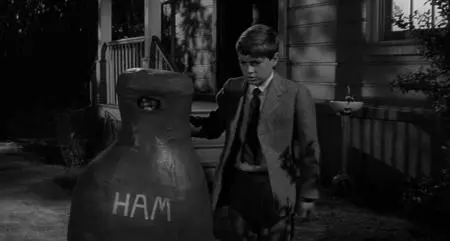
I think that you can show a kid Citizen Kane in 8th grade. But they're not going to like it the way they might if they came to it later, on their own, through an interest in film. Kids who are really interested in movies will be interested to take a dive into different kinds of movies, including those movies that set the foundation for modern movies.
Same deal with books. Those kids who end up liking classics...I think they'll find them. Meanwhile, we're pushing every kid through these same books, which are hard to relate to, overly long, and hard to enjoy if you don't care about the history of books and writing.
![]() 'Beowulf'
'Beowulf'
This tale of a dude who fights a sea monster, then a land monster, then the land monster’s mom...is actually pretty awesome. Beowulf is the first superhero. Get yourself a copy that doesn’t rhyme, read it, and brag about reading a total classic that’s like 50 pages long.
What are your thoughts on required reading? Share your horror stories below.

About the author
Peter Derk lives, writes, and works in Colorado. Buy him a drink and he'll talk books all day. Buy him two and he'll be happy to tell you about the horrors of being responsible for a public restroom.
 Shakespeare (All Titles)
Shakespeare (All Titles)
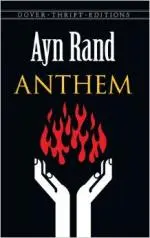 'Anthem' by Ayn Rand
'Anthem' by Ayn Rand
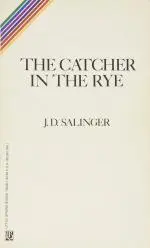 'Catcher in the Rye' by J.D. Salinger
'Catcher in the Rye' by J.D. Salinger
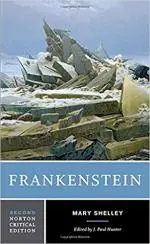 'Frankenstein' by Mary Shelley
'Frankenstein' by Mary Shelley
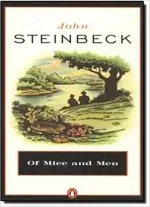 'Of Mice and Men' by John Steinbeck
'Of Mice and Men' by John Steinbeck
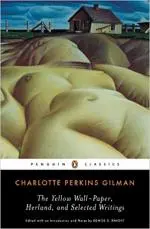 'The Yellow Wallpaper' by Charlotte Perkins Gilman
'The Yellow Wallpaper' by Charlotte Perkins Gilman
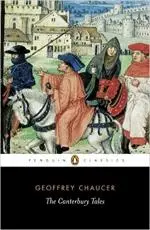 'The Canterbury Tales' by Geoffrey Chaucer
'The Canterbury Tales' by Geoffrey Chaucer
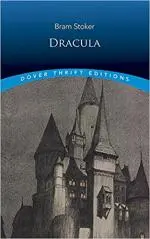 'Dracula' by Bram Stoker
'Dracula' by Bram Stoker
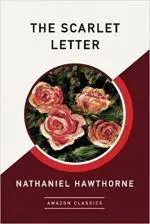 'The Scarlet Letter' by Nathaniel Hawthorne
'The Scarlet Letter' by Nathaniel Hawthorne
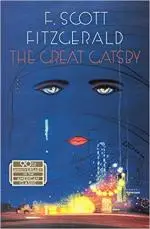 'The Great Gatsby' by F. Scott Fitzgerald
'The Great Gatsby' by F. Scott Fitzgerald
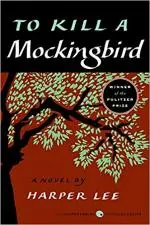 'To Kill A Mockingbird' by Harper Lee
'To Kill A Mockingbird' by Harper Lee
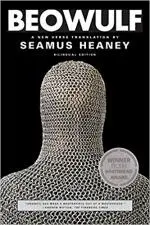 'Beowulf'
'Beowulf'








